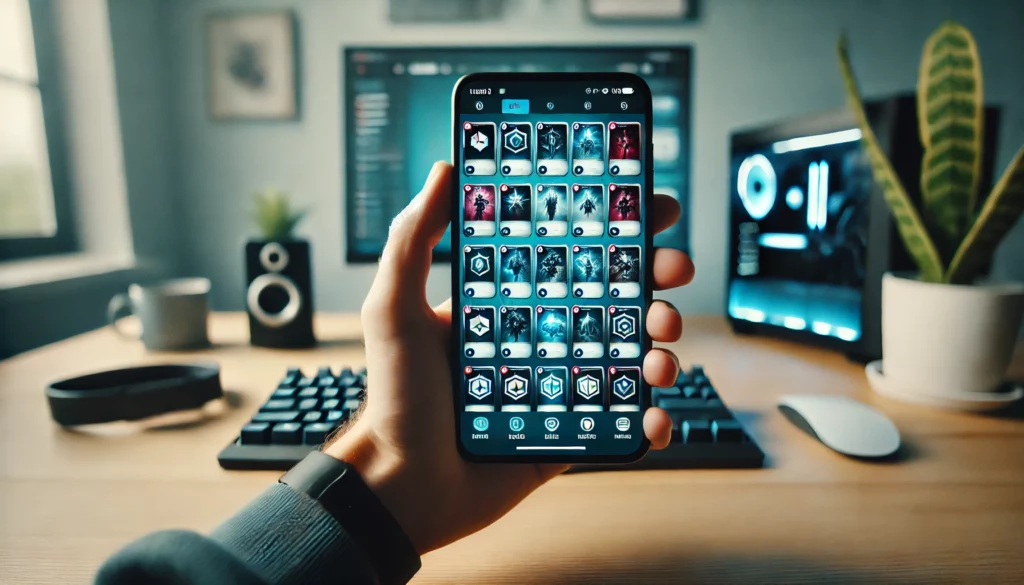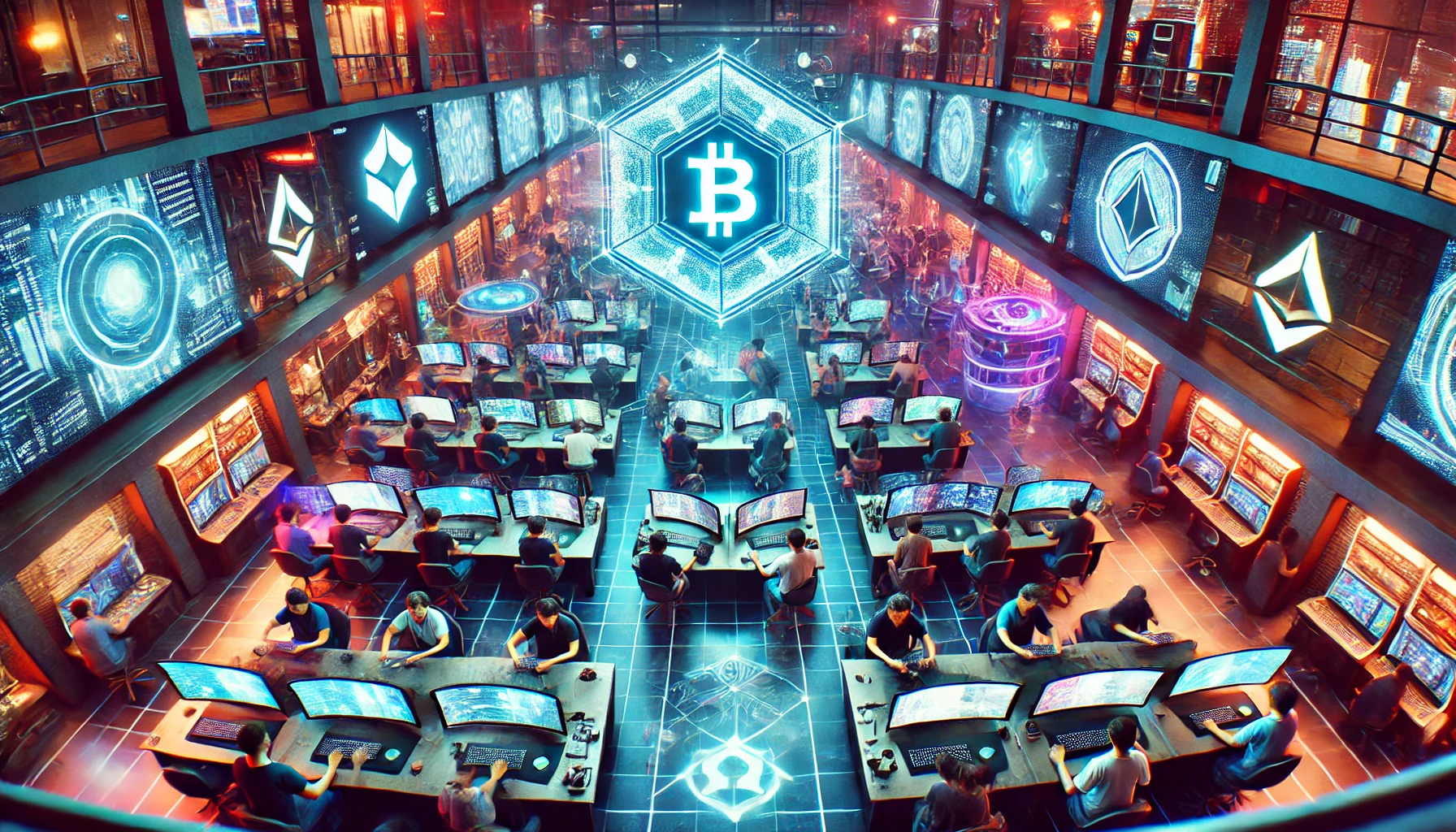Blockchain gaming: The next frontier of play-to-earn economies
A new era in gaming
Imagine a world where your in-game achievements aren’t just points on a scoreboard but valuable assets you can trade or sell in the real world. Blockchain gaming is transforming this idea into reality, using play-to-earn (P2E) models that reward players for their time, skill, and creativity. Powered by blockchain technology, these games offer players true ownership of digital assets and the ability to monetize their gameplay.
In this article, we’ll explore how blockchain gaming works, the benefits of play-to-earn models, and why this new approach is set to change the future of the gaming industry.
What is Blockchain gaming? The basics explained
Blockchain gaming combines the fun of gaming with the transparency and security of blockchain technology. Unlike traditional games where assets are restricted to the game environment, blockchain gaming uses non-fungible tokens (NFTs) and cryptocurrencies to give players true ownership of in-game items like characters, weapons, or virtual land. These items can be bought, sold, or traded outside of the game, often for real-world value.
Practical tip: Think of blockchain gaming as an economy where your in-game efforts can pay off in real life, allowing players to earn rewards, invest in assets, and even start businesses within the gaming world.
Stat: The blockchain gaming market was valued at over $10 billion in 2024, and is projected to grow significantly as more players embrace play-to-earn models.
Simplify how
Subscribe to stay ahead in crypto with tips, guides, and the latest blockchain insights delivered to your inbox.
How does play-to-earn (P2E) work in Blockchain games?
In play-to-earn games, players can earn rewards by engaging in various in-game activities, such as battling, farming, or completing quests. These rewards often come in the form of cryptocurrencies or NFTs, which hold real-world value. Here’s a breakdown of the P2E model:
- Earn in-game currency: Players earn cryptocurrency (like ETH or game-specific tokens, then exchange them for ETH/other Blockchain currencies) by completing tasks, competing in battles, or winning challenges.
- Ownership of assets: Items like characters, land, or weapons are represented as NFTs, which players own and can trade on secondary markets.
- Real-world value: Players can sell or trade their NFTs and cryptocurrency for real money, essentially turning gaming into a form of income.
- Community-driven economy: In many P2E games, players contribute to the game’s economy, either by investing in assets or by participating in governance decisions.
Popular blockchain games like Axie Infinity and The Sandbox have demonstrated how players can earn meaningful rewards, with some players making full-time incomes through P2E gaming.
Example: Axie Infinity players earn tokens called SLP (Smooth Love Potion) by battling with their Axies, which can be sold or traded for cryptocurrency, making it one of the most successful P2E games to date.
Top Blockchain games and platforms to explore
Here are some of the most popular blockchain games and platforms leading the way in play-to-earn gaming:
- Axie Infinity: One of the most famous blockchain games, Axie Infinity allows players to collect, breed, and battle creatures called Axies. Players earn SLP tokens, which hold real-world value.
- Why it’s popular: Axie Infinity was one of the first games to allow players to earn a living, especially in regions like the Philippines, where it became a significant source of income.
- The Sandbox: The Sandbox is a virtual world where players can buy, sell, and build on virtual land using NFTs. The game allows users to create their own assets and experiences within the platform.
- Why it’s popular: The Sandbox gives players extensive creative control and the ability to monetize their creations by selling them as NFTs.
- Decentraland: Decentraland is another virtual reality platform where users can buy, develop, and sell land parcels as NFTs. It has become popular for virtual real estate investment and for hosting events, concerts, and art galleries.
- Why it’s popular: Decentraland combines social interaction with a decentralized economy, making it a unique experience for investors and creatives.
- Gods Unchained: Gods Unchained is a blockchain-based trading card game where players own the cards they collect. They can buy, sell, and trade their cards, making it similar to physical collectible card games.
- Why it’s popular: With true ownership of cards, Gods Unchained provides players with tangible rewards and control over their assets.
Quick tip:If you’re new to blockchain gaming, start with a free-to-play game like Gods Unchained to get familiar with the play-to-earn mechanics before investing in NFTs or tokens.
Benefits of Blockchain gaming and play-to-earn models
Blockchain gaming and play-to-earn models offer numerous benefits that go beyond traditional gaming:
- True ownership: Players truly own their in-game assets as NFTs, meaning they can buy, sell, and trade items independently of the game.
- Earn while playing: P2E games allow players to generate income, sometimes enough to replace traditional jobs.
- Decentralized economy: In many blockchain games, players can participate in the governance and development of the game, making them stakeholders in the game’s economy.
- Greater transparency: Blockchain technology ensures all transactions are secure and publicly verifiable, adding transparency to the gaming economy.
Stat: Blockchain games attracted 1.4 million unique active wallets in 2022, showing a high interest in play-to-earn models and decentralized gaming.
Challenges and risks of blockchain gaming
While blockchain gaming has promising advantages, there are challenges and risks to consider:
- High initial costs: Some P2E games require an initial investment to get started. For example, Axie Infinity players need to purchase at least three Axies to play.
- Market volatility: The value of in-game tokens and NFTs can be highly volatile, meaning players’ earnings can fluctuate dramatically.
- Security risks: Like any blockchain-based asset, NFTs and tokens are susceptible to hacks or scams. Players must be cautious and use secure wallets.
- Regulatory uncertainty: Governments are still formulating regulations around blockchain gaming, which could impact its legality and accessibility.
Quick tip:If you’re interested in blockchain gaming, start small to understand the game mechanics and the potential risks before making a larger financial commitment.

The future of play-to-earn and Blockchain gaming
The play-to-earn model is likely to evolve, blending even more with metaverse platforms and virtual economies. As blockchain technology advances, we can expect games to offer more immersive experiences, where virtual and real economies are seamlessly connected. The future of blockchain gaming holds endless possibilities for players, developers, and investors alike.
Conclusion: The potential of Blockchain in gaming
Blockchain gaming is not just a trend—it’s the beginning of a new era in gaming that gives players a share in the game’s economy. As play-to-earn games gain popularity, blockchain technology will continue to open doors for gamers to earn, invest, and take ownership of their gaming experiences. Whether you’re a gamer or an investor, now is the time to explore the opportunities of blockchain gaming and be part of the future of digital economies.
FAQs
Here are answers to some frequently asked questions.
Blockchain gaming uses blockchain technology to create games where players have true ownership of in-game assets as NFTs. Unlike traditional games, players can trade, sell, and buy these assets for real-world value, making gaming more profitable and decentralized.
In play-to-earn games, players earn rewards, often in cryptocurrency or NFTs, by completing in-game tasks, competing in battles, or progressing through levels. These rewards can be traded or sold for real-world value, allowing players to earn money while gaming.
Some of the most popular blockchain games include Axie Infinity, The Sandbox, Decentraland, and Gods Unchained. Each game has unique mechanics and opportunities for players to earn and trade in-game assets.
Yes, players can earn real money from blockchain games by trading NFTs or earning in-game tokens that can be exchanged for cryptocurrency or fiat money. However, earnings depend on the game’s economy and the value of its assets.
Blockchain gaming involves risks such as high initial investment, market volatility, and security concerns. Some games require upfront NFT purchases, and the value of in-game assets can fluctuate, making it important to research thoroughly and start small.
